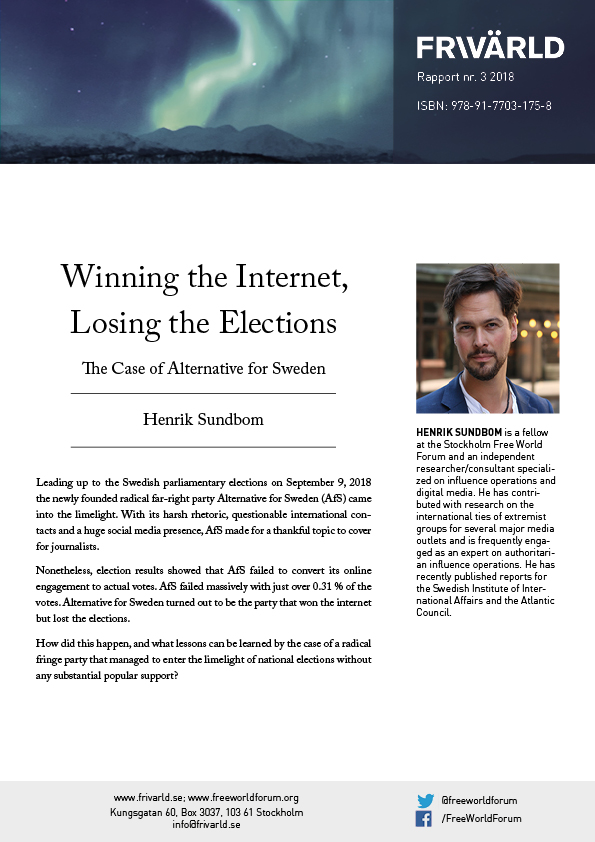Leading up to the Swedish parliamentary elections on September 9th 2018, the newly established radical far-right party Alternative for Sweden (AfS) came into the limelight. With its harsh rhetoric, questionable international contacts and a huge social media presence, AfS made for a thankful topic to cover for journalists.
Nonetheless, election results showed that AfS failed to convert its sizable online engagement to actual votes. In the end, AfS obtained only just over 0,31 % of the vote. Alternative for Sweden turned out to be the party that won the internet but lost the election.
How should we understand the case of a radical fringe party that managed to mobilize on the internet, but failed to gain significant voter support? And what lessons on the effects of extremist influence campaigns can be learned from case of AfS? These are some of the questions that are being examined in the report Winning the Internet, Losing the Elections: The Case of Alternative for Sweden.
– This case study of AfS highlights the risks of journalists over-reporting on marginal issues due to deceiving social media statistics. A too narrow focus on on cents payed for boosting individual Facebook posts or the count of anonymous troll accounts, risk overshadowing the important question of authoritarian and extremist actors’ intentions, says Henrik Sundbom, author of the report.
 Henrik Sundbom is a Fellow at the Stockholm Free World Forum and an independent researcher/consultant specialized in influence operations and digital media. He has contributed with research on the international ties of extremist groups for several major media outlets and is frequently engaged as an expert on authoritarian influence operations. He has recently published reports for the Swedish Institute of International Affairs and the Atlantic Council.
Henrik Sundbom is a Fellow at the Stockholm Free World Forum and an independent researcher/consultant specialized in influence operations and digital media. He has contributed with research on the international ties of extremist groups for several major media outlets and is frequently engaged as an expert on authoritarian influence operations. He has recently published reports for the Swedish Institute of International Affairs and the Atlantic Council.
